|
Dear Tony Richard Hunn (1949-2006) was both my academic and spiritual teacher. He taught me how read, write and interpret traditional Chinese ideograms. I trained with him between 1989-2006. He was an English gentleman who could read, write and speak many dialects of the Chinese language - including the rare Hakka dialect spoken by our Chinese grandmother (whom Richard met in 2000 during a visit to our house). I wrote this for Richard following his passing: He helped me understand and balance the two sides to my character - the 'Chinese' and the 'British'. He used to work for Pebble Mill (BBC) - but was an academic expert on the Chinese language and Chinese Buddhism. His spiritual teacher was Charles Luk (1898-1978) - who in-turn trained under the Great Chinese Ch'an Master Xu Yun (1840-1959). To me, Richard Hunn represented everything that is great and good about the UK. In 1991, Richard Hunn gave-up his life in the UK and migrated (via a modest academic study grant) to Kyoto in Japan. He lived there between 1991-2006 (marrying a Japanese woman - Taeko - with whom I am still in communication with today). Why did he choose Japan? Well, he received an academic grant to study the transmission of Chinese Ch'an from China to Japan - which included examining the Chinese Ch'an Temples that still exist in Japan - separate and distinct from the Japanese 'Zen' Temples. Every August-September each year, Richard Hunn (who worked at Kyoto University) used to escort a number of his English Study students (usually 20 or so) to look around London. The students would stay for about two-weeks before returning as a group to Japan without Richard. Being 'free' of this responsibility, Richard would visit all his family - before spending a week or two at our house in Sutton (Priory Road - where you showed me an excellent Tensho Kata in the hall). We would meditate together and discuss reality deep into the night. He used to test my understanding of Chinese ideograms - crushing my stupidity and encouraging my insight. Even so, I was reticent to actually 'translate' anything - until a number of Mainland Chinese students studying in the UK checked my work - and encouraged me to start translating. I was then put in contact with a number of academics in China and my life entered a new phase. Richard Hunn visited a number of old martial arts 'Dojo' positioned in and around the remote Kyoto hills. He was often 'Introduced' with a letter to various Old Masters who lived in rustic huts - usually with only one or two disciples. Many practiced Chinese arts unaltered in anyway for hundreds of years. These Japanese men and women also studied traditional Chinese ideograms - the original language of the arts they preserved. As these arts existed 'outside' the grading (coloured-belt) system of Japan - they were excluded from all State financial support - hence their simplistic existence. Best Wishes Adrian
0 Comments
Dear B As far as I am aware, Master Xu Yun had studied the Yijing as a child (and youth) under the strict supervision of the numerous tutors that his (Scholar-Official) father traversed through the household. This was in preparation for Xu Yun to take the 'Scholar-Official' Government Examination - which required the rote learning of the Four Books and the Five Classics - and the meticulous replication (word for word) of required sections of each text. A good Scholar-Official must demonstrate how he would deal with each real-world incident by referring to a precise and exact extract of whichever divine-text was relevant to the situation. There could be NO deviation from this ancient (and 'perfect') process if a candidate was to be successful. Remember, tens of thousands applied - and only the low-hundreds would be 'Passed' - according to governmental needs (which meant thousands who had 'Passed' would be 'Failed' as no posts existed for them to be allocated toward). On paper (and in public), Master Xu Yun always distanced himself from Confucian and Daoist Texts (the Yijing in China is considered a 'Confucian' Text). This is to be expected from a man who betrayed the will of his father and instead embraced the Path (Dharma) of the Buddha - a religion that even today is considered 'foreign' in China. To be successful on this path - Xu Yun had to completely abandon what appeared to be the worldly path as defined by Chinese convention. Therefore, the (Indian) Vinaya Discipline took the place of the Four Books and the Five Classics. If this was the cae, then why did Xu Yun (privately) advise Charles Luk to study the Yijing and integrate it with the Ch'an Path? In the UK - Richard Hunn (my primary teacher) was considered the most prominent 'Master' of the Yijing - as he could read the original (and ancient) Chinese ideograms and even lectured about this Text to ethnic Chinese students attending University in Great Britain in Putonghua! For our Ch'an (Caodong) Lineage (Master Xu Yun inherited and transmitted all Five Houses of Ch'an - but in his private transmission he only favoured the 'Caodong') - the Yijing is a pivotal and yet 'hidden' Text. Remember, the Caodong Masters were also experts in the study of the Yijing - and they used trigrams and hexagrams to devise the Five Ranks System. Xu Yun was the opinion that it is only through the study of the Yijing that the Caodong methodology can be truly understood. In this regard, John Blofeld was never privy to this advanced knowledge. If he met Xu Yun - it was merely for a few minutes where Blofeld (by his own admission) spouted nonsense. Of Course, I salute your efforts and you must never be afraid (as I know you are not) to pull the whiskers of the tiger! With Metta Adrian
Dear B Douglas Harding used to hold Zen meditation sessions by lying on the floor. He had no time for formal structure - as 'having no head' also apparently meant that 'he had no body' - although most people who encounter his work seem not to realise the latter. Richard Hunn knew John Blofeld and Douglas Harding - although if he knew Terrence Grey - nothing was said to me. Blofeld mentions meeting Xu Yun - but Xu Yun does not mention meeting Blofeld. This need not negate the encounter - as Xu Yun was photographed with numerous Westerners - many of whom are not mentioned in his biography. In the UK - the barbarous treatment meted-out by the Imperial Japanese Army to British POWs and civilians is still remembered with disgust and derision - as is their savage treatment toward tens of millions of Asian victims. Just what Blofeld is talking about does not ring true. Richard told me that Blofeld eventually retired to Thailand - and 'gave-up' Buddhism in the last years of his life - becoming anti-Asian and pro-Christian, so perhaps his wayward attitudes express these changes. I inherited Charles Luk's papers, and having looked through the volumes, I can say that there is no mention of John Blofeld, Douglas Harding or Terrence Grey. Charles Luk was opposed to Japanese religious corruption and actively campaigned against it. He certainly would not have assisted Blofeld if he knew of his pro-Japanese attitudes. As to hilly Hong Kong mountains - he is probably speaking of the Sai Kung area of the New Territories - where our Ancestrial village used to be. As the area is now a 'National Park' - the US social media has extended the so-called '411' mythology to include this area. Whenever I visited the area - I used to make sure I was with Chinese relatives who knew where they were going. Yes - Richard Hunn gave me his copy of John Blofeld's Yijing. It is a peperback to which Richard added a stouter cover. Of course, it is not the full Yijing, but only the Hexagrams, its line commentaries, the Judgements and Images. From what I can see, I believe Blofeld is copying Wilhelm and is not working from the original Chinese language text. It is a re-interpretation of a translation. Of course, I suspect there are hundreds of these re-interprtations in the English language by now - and that a certain selection can grant an overview of the original text. I am told that an astonishing 600,000 Americans go missing each year in well sign-posted National Parks and National Forests - although all but 6,000 are found safe and well - and that this finding is through the application of the scientific method. When people's lives are at stake I doubt superstition can replace logic and reason. In the days that Blofeld is referring to - the New Territories were strewn with hundreds of villages - many of them Hakka (he does not know this because he never went there). The distance between villages was quite often miniscule. I would say that getting truly lost would have been very difficult as there were settlements everywhere. These are the settlements the Imperial Japanese Army raped and pillaged their way through - killing at least 10,000 people in a relatively small area (1941-1945). The Yijing certainly did not assist the ethnic Chinese escape this fate. One last point that Blofeld is missing is that the Imperial Japanese Government 'banned' everything 'Chinese' - and this included the study of the Yijing. Blofeld is, therefore, misinformed and I would say, not to be trusted. With Metta Adrian
Dear J
Thank you for your interesting email. Richard Hunn spent much of his mature years working upon a full Chinese-English translation of the Yijing whilst working with a British publisher at a time when such an idea was unheard of in the West. The problem was that this publisher wanted to change many aspects of the translation and Richard Hunn disagreed - as these changes would alter the intended meaning of the translation. Due to these creatiive difference - the Publisher eventually pulled the plug and the project was shelved (in the late 1980s). Nowadays, translations like this are fairly common in the West (many produced by ethnic Chinese scholars) - so perhaps Richard Hunn was ahead of his time! As well as studying the available Richard Wilhelm translation (in its various guises) - Richard Hunn thought highly of the concise (English) translation generated by John Blofeld (not very well-known today). Although Richard Hunn would spend much of his time reading the original Chinese language version of the Yijing presented to him by Charles Luk (1898-1978). John Blofeld translation is only the 64 Hexagrams and the directly related commentary material (together with the 'line' commentaries) excluding the Ten Wings content. This is similar in structure to the various 'Pocket' or 'Concise' editions of Wilhelm (premised upon the 1950 edition translated by Cary F. Baynes from the German into the English language). John Blofeld's rendering of the Yijing, however, is a very different English language translation than that generated by Wilhelm-Baynes (Richard Hunn personally knew John Blofeld - despite Richard being much younger than John). John Blofeld ended his days living in Thailand (I believe with his Asian family). Once a suitable translation of the Yijing is secured - as there are many today - then it is a matter of a) intellectually studying the history and meaning of the text as if it were a typical (narrative) subject similar to academic history or philosophy, etc, and/or b) taking the exactly opposite approach of relating to the Hexagram and related text (including the Ten Wings) - in a direct and existential manner which draws the totality of the 'past' and the 'future' into the 'eternal' present. This replicates today exactly how the original 'Zhouyi' a) developed over time, and b) was used 'directly' by the Diviners of the Zhou Kings! Of course, Chinese language tradition talks of earlier (but similar) divinity manuals existing during the Xia and Shang Dynasty. Best Wishes Adrian I apprenticed with Richard Hunn (1949-2006) for sixteen years - and it was from his expert guidance that I learned to read traditional and simplified Chinese script! As for the ethnic Chinese side of my family - I learned an old form of the Hakka language mixed with Hong Kong Cantonese - but I did not learn Chinese ideograms (other than a handful marking key Chinese philosophical terms). I mostly learned the 'pinyin' of Mainland China as this overlapped with my Western (British) education! Richard Hunn was not only a leading British Sinologist who had been accepted within the ethnic Chinese community - he had also studied with (and inherited) a legitimate Ch'an lineage under an ethnic Chinese teacher - Charles Luk (1898-1978)! In 1991, Richard Hunn took the decision to permanently relocate to Kyoto, Japan, to embark upon a commisioned study programme designed to research the Chinese Ch'an Buddhist roots of Zen Buddhism in Japan! Kyoto is an ancient city that was spared Allied blanket-bombing during WWII and still possessed ancient 'Chinese' Ch'an temples tucked between typical Japanese Zen Buddhist temples, whilst in the remote hills surrounding Kyoto, there still existed Japanese martial arts Masters who lived in rustic huts (usually with a single disciple), who practiced, preserved and passed on Chinese martial traditions that did not receive the usual Japanese government financial, cultural or political support due to their refusal to adopt the coloured-belt system of Judo - and make an official proclamation denouncing their 'Chinese' heritage. These old Masters usually survived through the kindness of rich patrons. Richard Hunn, however, was permitted a number of interviews with some of these Masters who described the history of the martial and medicinal lineages they upheld! All this stems from the fact the Japanese convention is to 'separate' lineages - whilst the Chinese tendency is to 'integrate'! In Japan, 'Soto' and 'Rinzai' are presented as unrelated Buddhist traditions - whilst in China - 'Caodong' (Soto) Masters readily resorted to all kinds of methods to free the minds of their students (including the hua tou and gongan), whilst a number of Linji (Rinzai) Masters allowed their disciples to 'sit quietly' and contemplate the empty essence of their minds! Part of this issue can be traced to the dynamics of the transmission process. Zen Master Dogen [道元 - Dao Yuan] (1200-1253), for instance, was an 'enlightened' Rinzai Master before he set-off to Japan during 1223! (His name literally translates as 'Way Origin' - or 'Emergence of Perfect Order' - and is probably related to the Confucian concept of 'Li' [禮]. That which is good but 'invisible' - through correct thought and virtuous action - is made 'visible'). When he arrived, he found his understanding was deficient (even amongst the Linji Sects), and was completely exposed when communicating with the Caodong Masters! What is presented below are a few pages of the book entitled 'Dogen's Formative Years in China - An Historical Study and Annotated Translation of the Hokyo-Ki' By Takashi James Kodera, Routledge, 1980, Pages 26-35. None of the above or following scholarship is included in this book. However, as it is my function is to facilitate the further transmission of authentic Chinese Ch'an into the West - this extra data is provided to empower the general reader to a greater degree, so that they may possess a deeper appreciation of the subject matter at hand from a Chinese language perspective, given that Takashi James Kodera has done such a good job at presenting the Japanese cultural perspective. The term pronounced 'Hokyo-Ki' in the Japanese language is written using the following Chinese ideograms:
a) 宝 (Bao) = Ho - Precious, Treasure and Cherish b) 庆 (Qing) = Kyo Virtue, Auspicious and Congratulate c) 记' (Ji) = Ki Record, Chronical and Notes Therefore, Hokyo-Ji = Baoqing-Ji (宝庆记)! Dogen studied in China between 1223-1227 CE - which was the time of the Southern Song Dynasty (1127-1279 CE). Emperor 'Lizong' (理宗) reigned between 1224-1264 CE. Dogen named this book after the first 'Era' of Lizong's reign which was termed 'Baoqing' (宝庆) - named after a house the emperor particularly favoured (a house of 'Cherished Virtue'). The ''Baoqing' (宝庆) Era measured three years of chronological time: 1) 1225 - Stem and Branch 'Yiyou' (乙酉) 2) 1226 - Stem and Branch 'Bingxu' (丙戌 3) 1227 - Stem and Branch 'Dinghai' (丁亥) Dogen's text then, purports to record in writing the details of the experiences he encountered whilst traversing the Zhejiang area of East China, and the information he gathered for the years '1225'. '1226' and ''1227'. This is a significant observation as this book omits the first years of '1223' and '1224' of Dogen's visit to China and instead focuses upon his interaction with the Caodong Ch'an teacher - Master 'Tiantong Rujing' (1163-1228). Therefore, the Baoqing Record (宝庆记) is a manual of all the dialogues and interactions that occurred between Dogen and Master Rujing! It is the fruit of this communication through which Dogen attained to a genuine understanding of the empty essence of his mind! This is a remarkable outcome considering that when he first made port in Zhejiang - the Chinese Authorities required that he stay on his ship for three months whilst a question regarding his Buddhist Ordination was clarified (as his Entry Visa was dependent upon his credentials as a fully Ordained Buddhist monastic). Although he had taken the Bodhisattva Vows - he had not yet taken the Vinaya Discipline Vows - a situation which was eventually rectified and he was granted entry! The publishing business can be a tricky place full of pitfalls for the inexperienced and the unwary – Richard Hunn (1949-2006) was neither of these two things. What he was amounted to being one of the most talented and well-educated Western authorities upon the subject of Chinese languages, Chinese history, Chinese culture and Chinese thought! Indeed, so highly regarded was he in these areas, that even as a young man, Charles Luk (1898-1978) took him as his personal disciple and despite knowing and teaching thousands of others in the world – transmitted the Ch’an Dharma exclusively to him! In 1991, Richard Hunn emigrated to live in Kyoto, Japan, where he taught English Language and English Literature at Kyoto University. He took on this career so that he could dedicate his spare-time to the study of Chinese Ch’an in Japan. In 2002, whilst sat in the living room of my house in Sutton, South London, Richard Hunn became very upset and started to convey to me the story of how he had spent many years carefully translating a number of Ch’an Enlightenment Poems – most of which were completed, checked and endorsed by Charles Luk himself prior to his passing! As Richard Hunn had held Ch’an Week Retreats as a Guest Teacher of the Western Ch’an Fellowship in the Bristol area of the UK- it was suggested to him around 1983, that he forward his finished manuscript containing these poems to Master Sheng-Yen (聖嚴) so that the Taiwanese Head of the Western Ch’an Fellowship could be invited to write and ‘Introduction’. Within Chinese language sources, ‘Sheng-Yen’ is referred to as ‘聖嚴法師’ (Sheng-Yen Fa Shi) or Shang-Yen Dharma Master’ (which implies he is learned with regards to the Buddhist sutras, their contents and their meanings), but is never referred to as ‘聖嚴禅師’ (Sheng-Yen Ch’an Shi) or ‘Sheng-Yen Meditation Master’ - implying that he is acknowledged as specialising in ‘mind to mind’ communication and transmission. Indeed, it is only through his own self-referencing that ‘聖嚴禅師’ is encountered. Richard Hunn wrote a letter in the Chinese language introducing himself and his Ch’an lineage – and enclosed copies of all his translated Ch’an poems – politely enquiring as to whether Master Sheng-Yen thought the poems were of any use – and if so – if he had the time to compile an ‘Introduction’? Richard Hunn did not receive any reply – not even an acknowledgement of receipt. Prior to his passing in 2006, Richard Hunn showed me his decades-old translation work with his scribbles, crossings-out, underlining and highlighting of the original Chinese-language texts of these poems – Charles Luk’s comments written under about two-thirds of the finished translations. This work was completed by Richard Hunn between 1975-1983. As many were posted to Charles Luk who was living in Hong Kong, the dates of these translations are clear for all to see. Richard Hunn was astonished, therefore, to be contacted by a student (in 1985) who said he had come across Richard’s translation work in a book on sale in a British bookshop – but published under the name of one ‘Master Sheng-Yen'! Obviously, I inherited all the papers of Charles Luk and Richard Hunn, and I have in-front of me now, Richard’s original English language translations of a number of poems regarding Ch’an Enlightenment (together with the ‘original’ Chinese texts he translated these poems from) - and they are ‘identical’ word for word – for those poems which appear under Master Sheng-Yen's name! Furthermore, the entire book from its ‘title’ to the calligraphy used on the opening pages all belongs to my teacher – Richard Hunn! Reading these poems is to touch the heart of Richard Hunn as they have absolutely NOTHING to do with the creative talents of Master Sheng-Yen! Indeed, his life has been controversial in many areas – including being a member of the Taiwanese military between 1949-1960.
Chinese Language Reference: https://baike.baidu.com/item/释圣严/1956534 Dear R
Thank you for your interesting email. RHACS tends to emphasis support 'at a distance' for those engaged in a self-administered (and self-disciplined) programme of seated-meditation. The guide books that support this 'mindfulness' practice are those written by Charles Luk (1898-1978) entitled 'Ch'an and Zen Teaching - Vol I-III' and 'Empty Cloud' - the English language translation of the original Chinese language biography of Master Xu Yun (1840-1959) who lived into his 120th-year. Of course, 'mindfulness' is a key Buddhist attribute that expands far beyond the usual limited and/or divergent understanding that currently abounds. If you wish to discuss 'mindfulness' - please feel free to email further. With Metta Adrian As a number of sincere practitioners have contacted me of late enquiring about the Pure Land Teachings as preserved within China - I have decided to make a simple offering of photographed pages presenting Charles Luk's expert guidance on this matter as recorded in his book entitled 'The Secrets of Chinese Meditation'. I have chosen the original (1964) hardback edition - as quite often later editions were sometimes altered here and there to suit the agenda of various publishers. This is Chapter Three (3) of that book which runs from and to pages 81=108.
This text is from Charles Luk's English translation of Master Xu Yun's Chinese Language biography rendered into English as 'Empty Cloud - The Biography of the Chinese Zen Master Xu Yun' (compiled by Xen Cue Lu) and edited by Richard Hunn (1988) - Published by Element Books. The Copyright to this text belongs to the Luk family - particularly Irene Luk - the daughter of Charles Luk.
Dear Jacques
Charles Luk (1898-1978) was born in Guangdong - an area of international interaction. During the pro-Western Nationalist Revolution of 1911/12 - he would have been around 13-14 years of age. Even prior to this, he may well have been exposed to English settlement (and schooling) in the Guangzhou area. He remained very tight-lipped about his education - possibly because it may have been missionary-based and he did not believe in the Western religion. From what I gather, Charles studied under a Mongolian Lama who lived in the Sichuan area of South-West China (where millions of Tibetans also live). He was interested in the Phowa method of consciousness-transformation at the point of death. This had no bearing on his training with Master Xu Yun (1840-1959). Ch'an and Phowa are two independent and different methods - with Phowa being a preparation for the dying procedure - although traditionally Ch'an Master did not require this. Within China, the current biography of Master Xu Yun is much longer than that translated compiled by Cen Xue Lu and translated by Charles Luk - which is now out of date despite being the only blue-print available in the West. Empty Cloud conveys the basic story even though there are some errors, etc. https://icbi.weebly.com/chrsquoan-master-jing-hui---history-of-master-xu-yunrsquos-complete-biographical-text.html One of my Chinese students presented me with a 'new' version and it is very interesting - giving a more all round perspective. Xen Xue Lu also altered the text slightly to give a certain bias toward the reading - as did Charles Luk. Neither were happy with Xu Yun's criticism of Tibetan Buddhism or Christianity! It is also interesting to note the complete absence of the recording of the Nationalist destruction of the Shaolin Temple (in Henan) during 1928 - the traditional home of Ch'an Buddhism in China! Cen Xue Lu admits in his biography that he once worked for the Nationalist government which pursued a policy of clearing land of temples to build housing, schools and hospitals, etc, a policy he later rejected as a 'mistake'. Charles Luk removed Xu Yun's letter to Chiang Kai-Shek criticising his embracing of the foreign religion of Christianity: https://wenshuchan-online.weebly.com/xu-yunrsquos-letter-to-chiang-kai-shek.html Both scholars retained the majority of Xu Yun's text and certainly did not alter his teaching method directly - but through omissions and the strategic placing of details, a certain politic trajectory is established through the editing and translation processes - giving the mistaken impression that such an interpretation was present in Xu Yun's original text - when in fact Xu Yun was very careful to be 'apolitical' whilst dealing directly with what was going on around him. In other words, the political sway of Empty Cloud represents the politics of the era as interpreted by Cen Xue Lu and Charles Luk (both of whom ended-up living in the British Colony of Hong Kong). Best Wishes Adrian |
Archives
March 2024
Categories
All
|
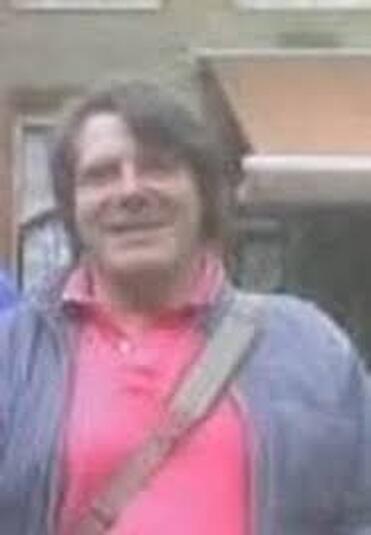
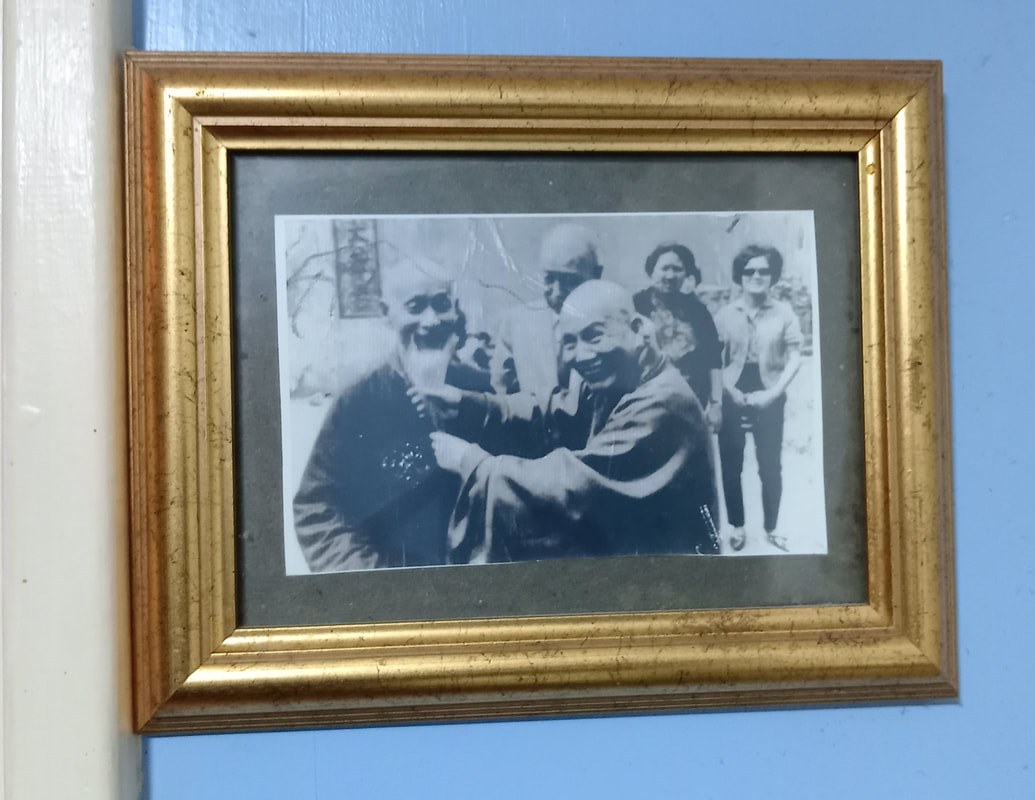
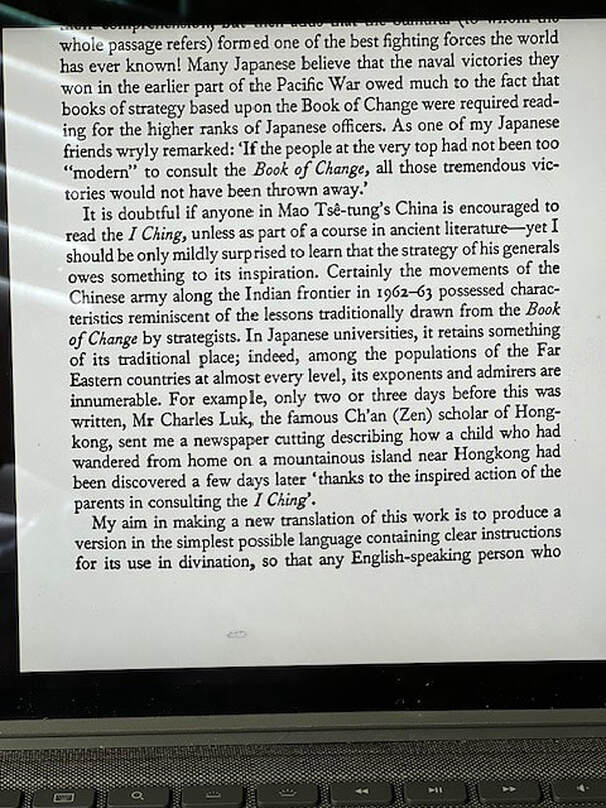
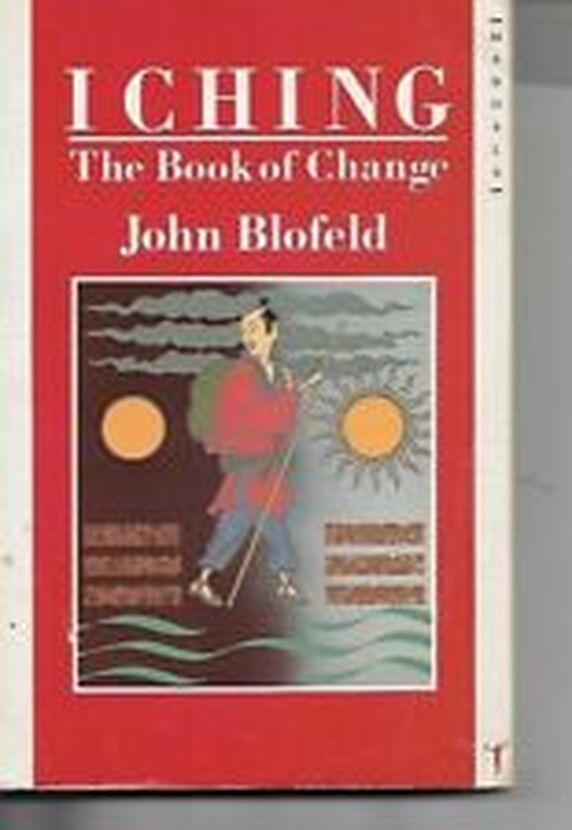
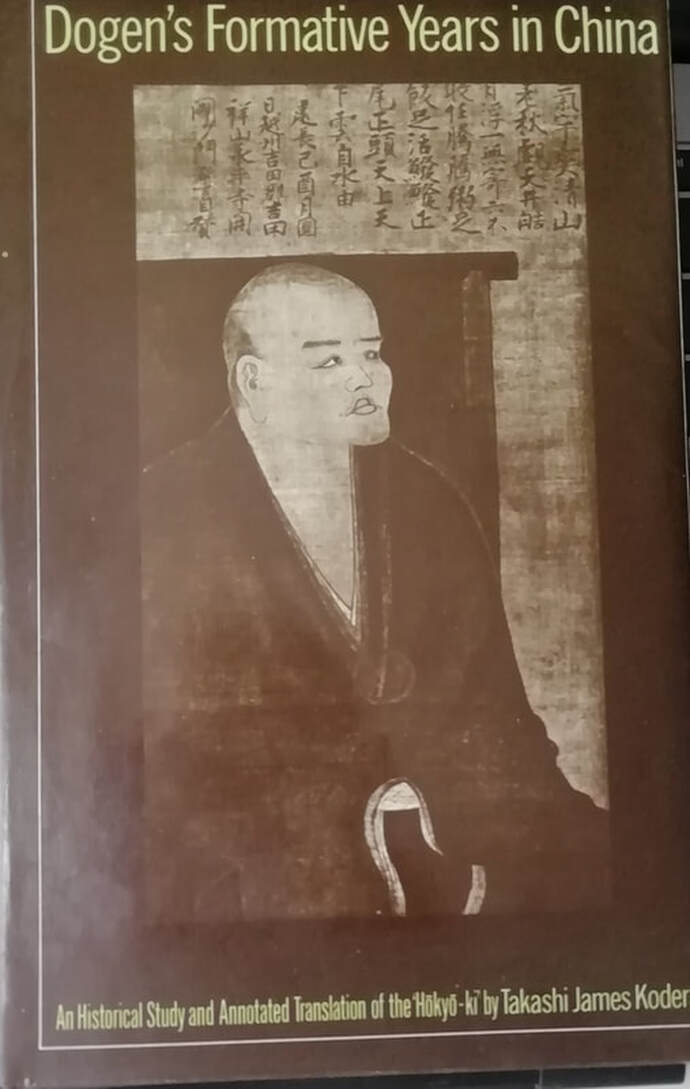
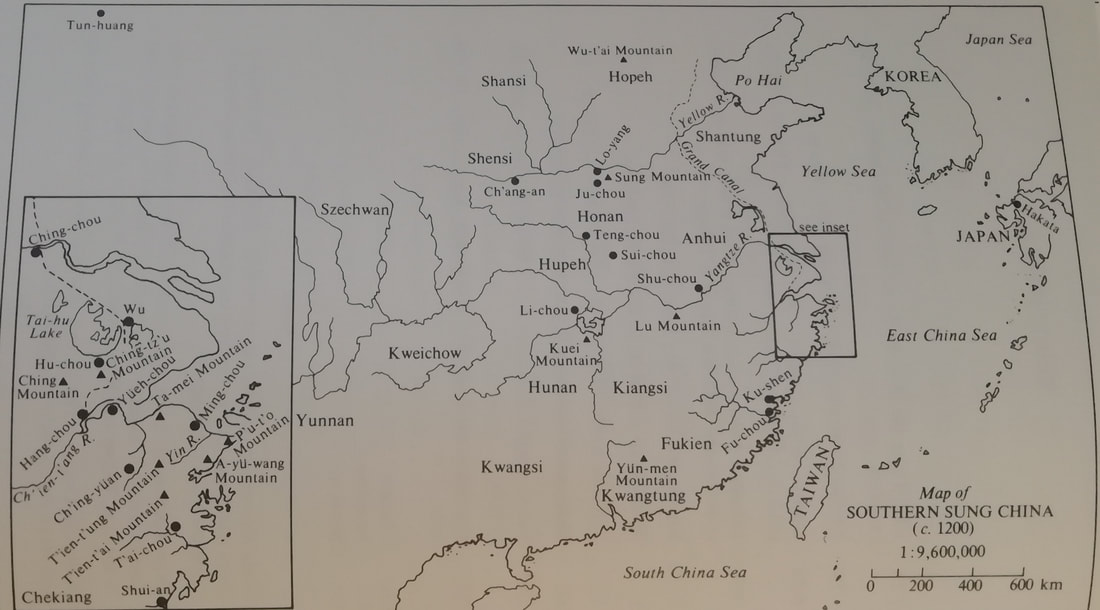
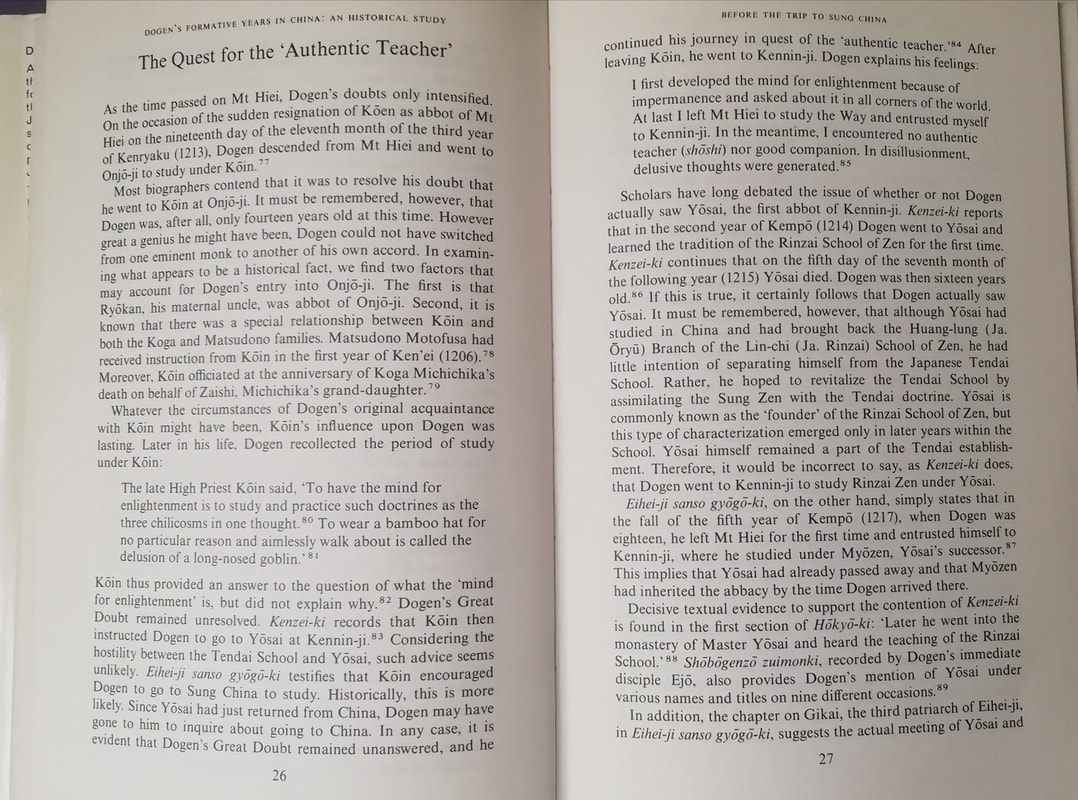
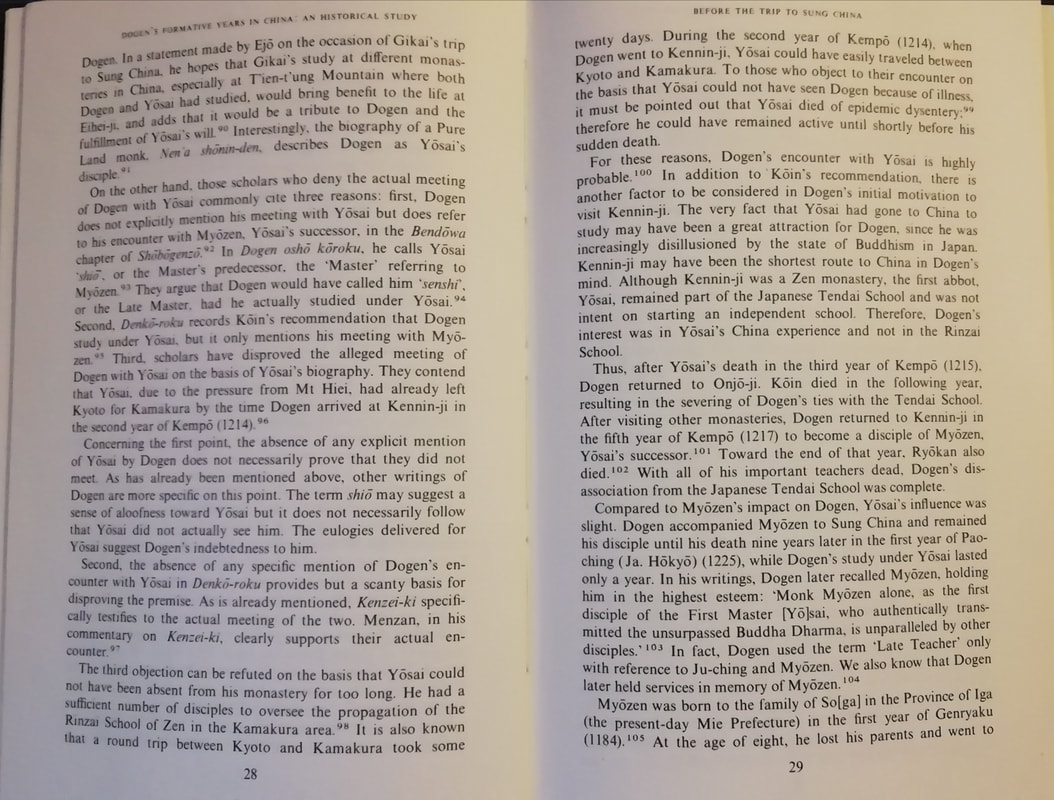
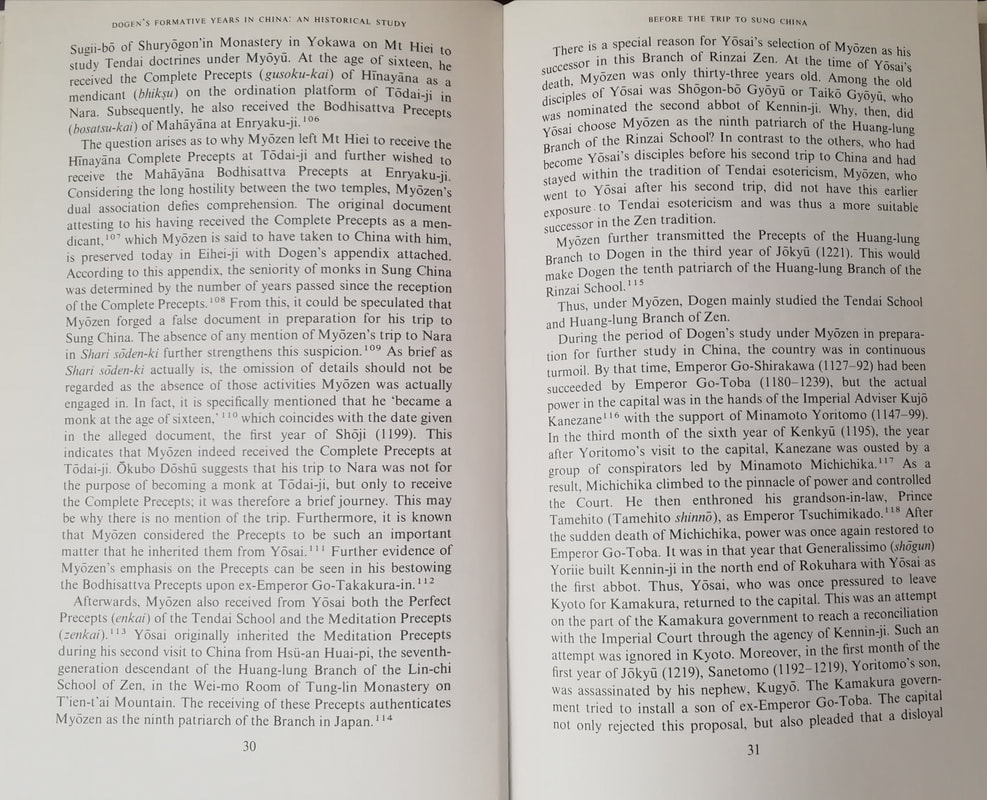
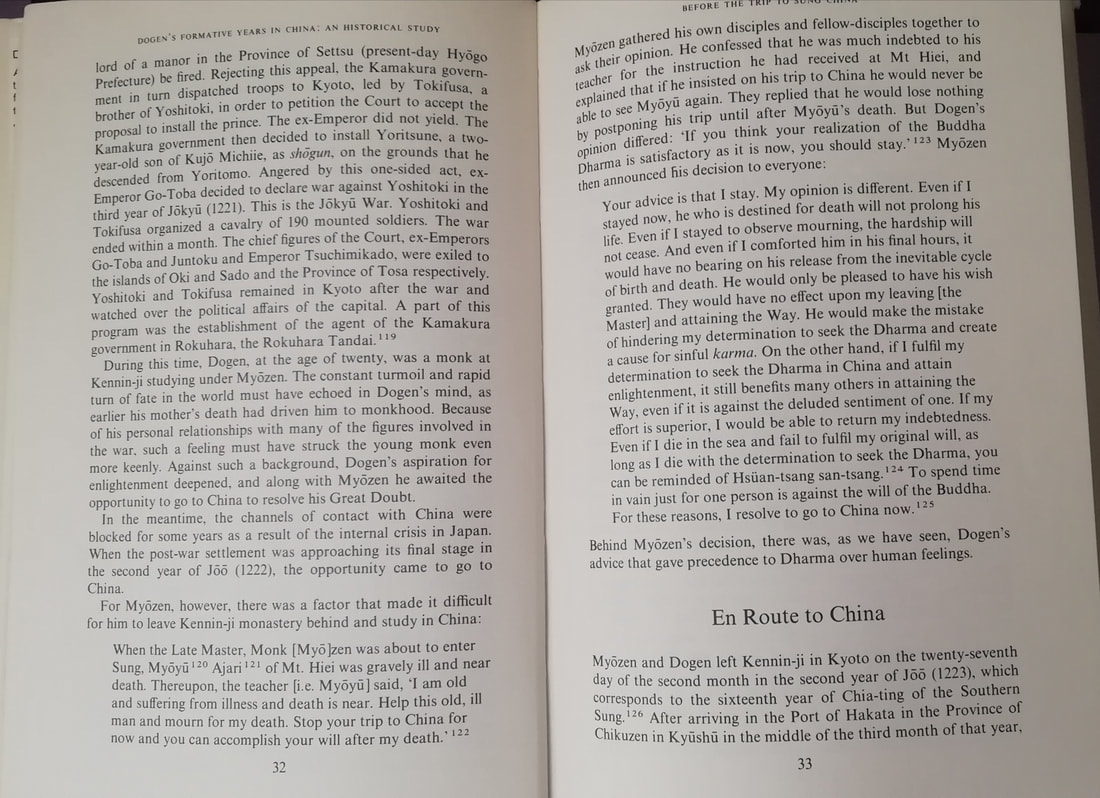
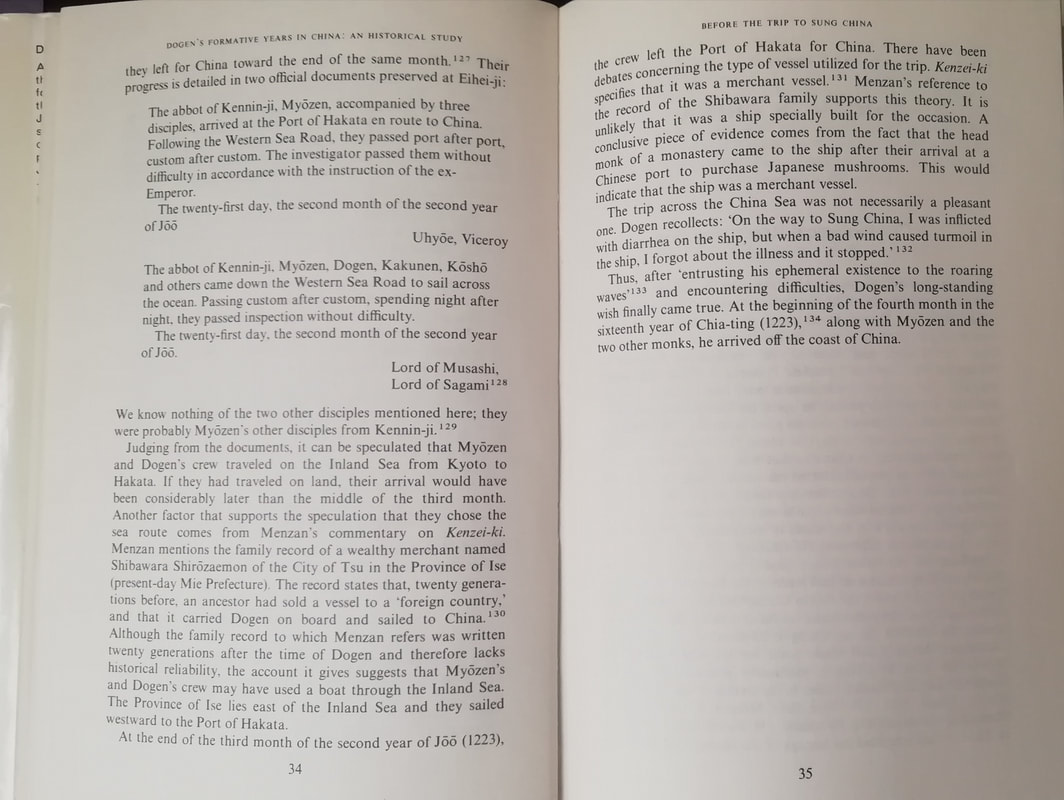
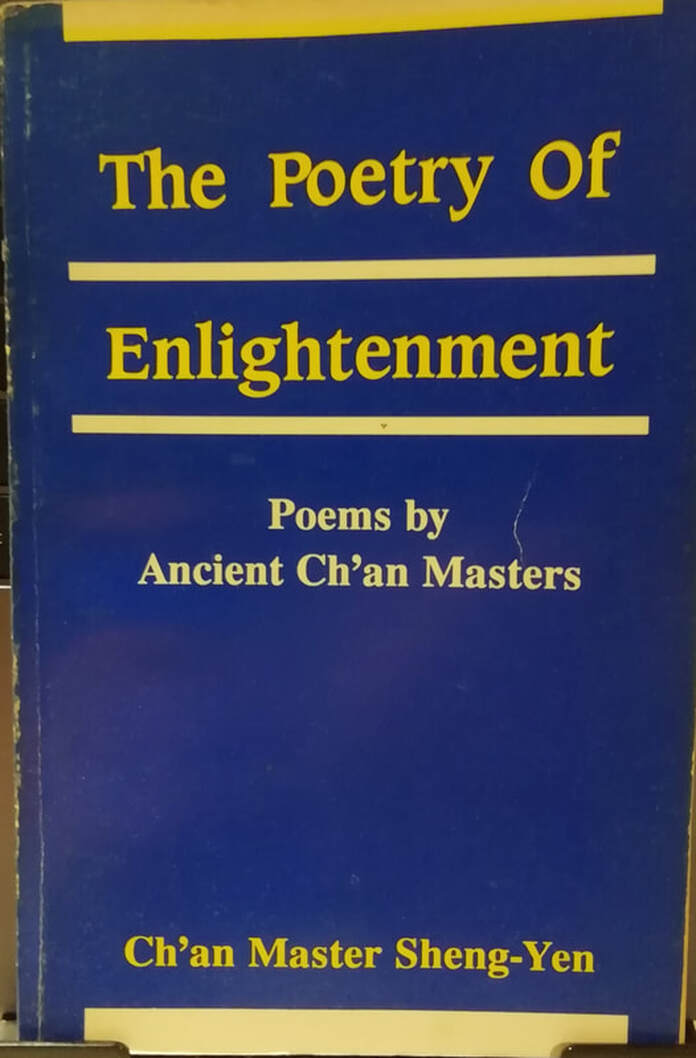
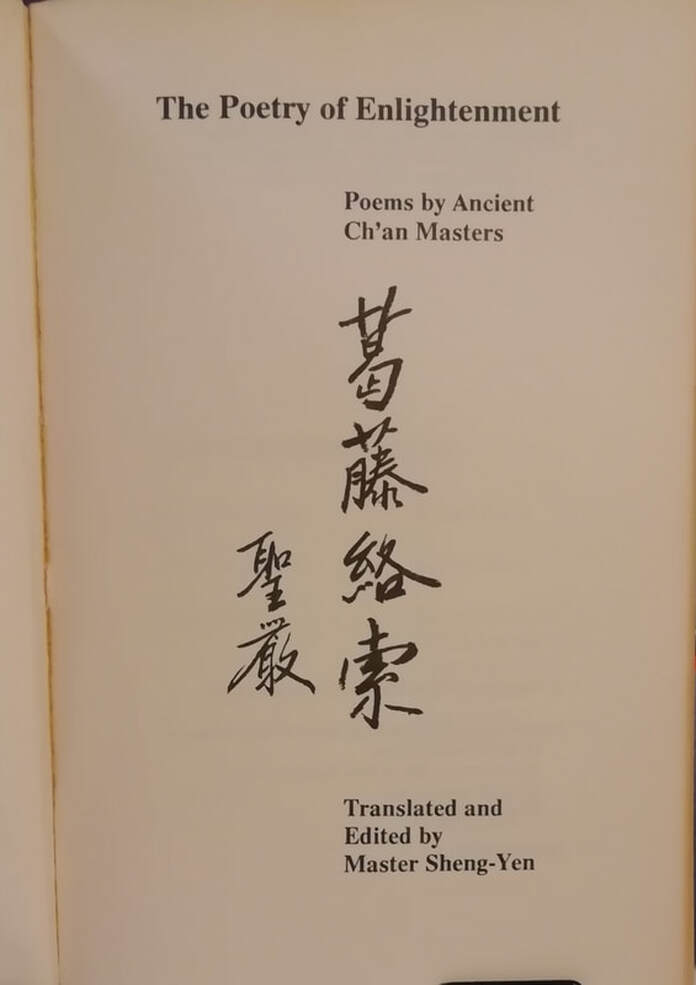
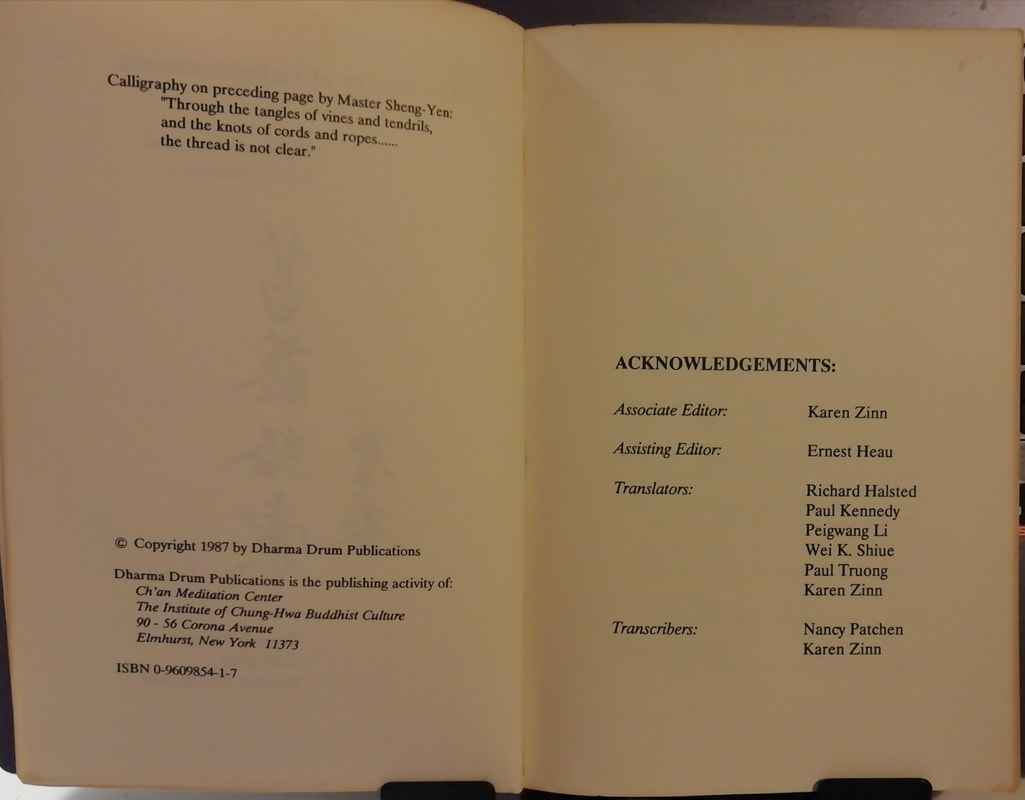
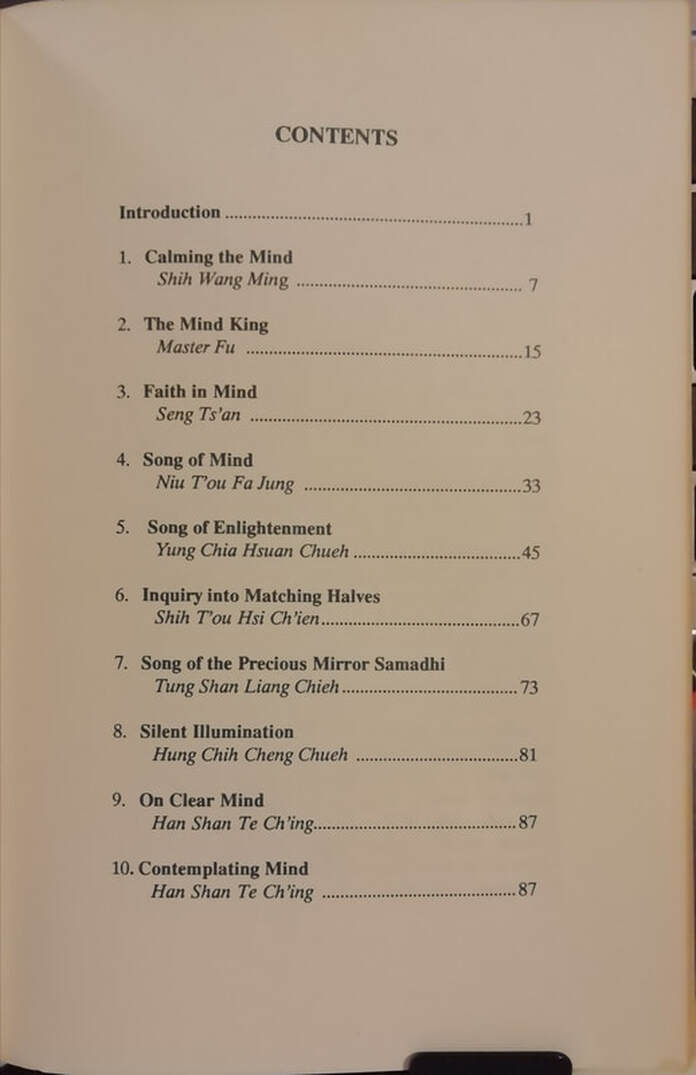
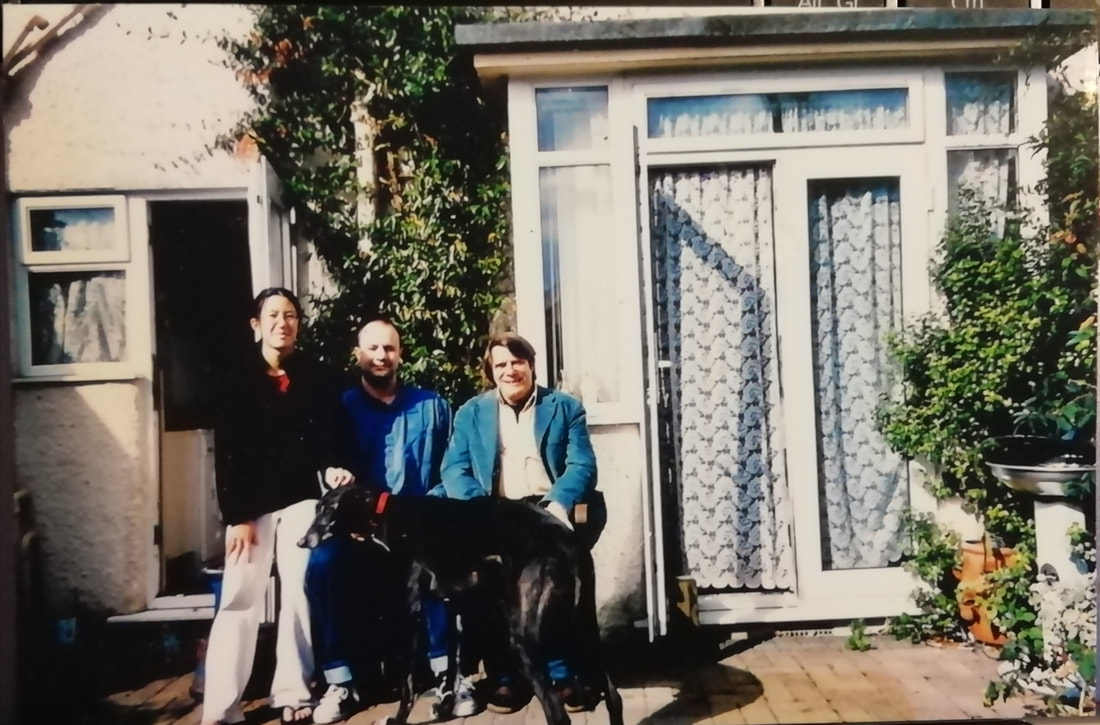
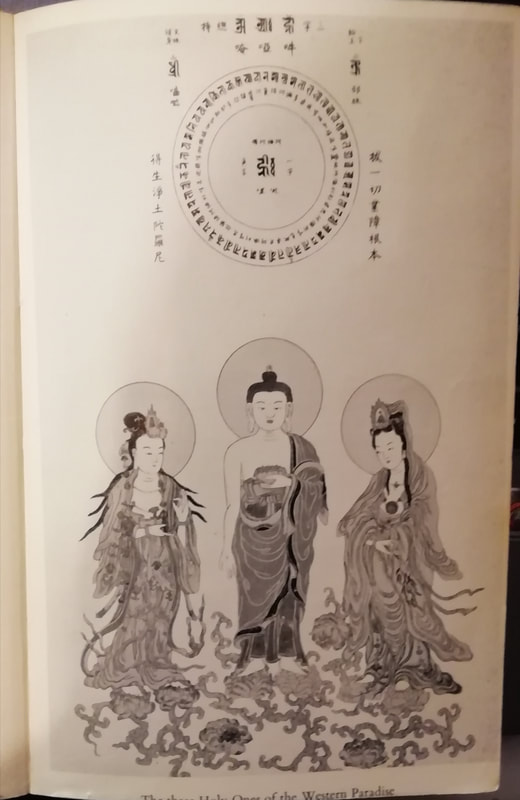
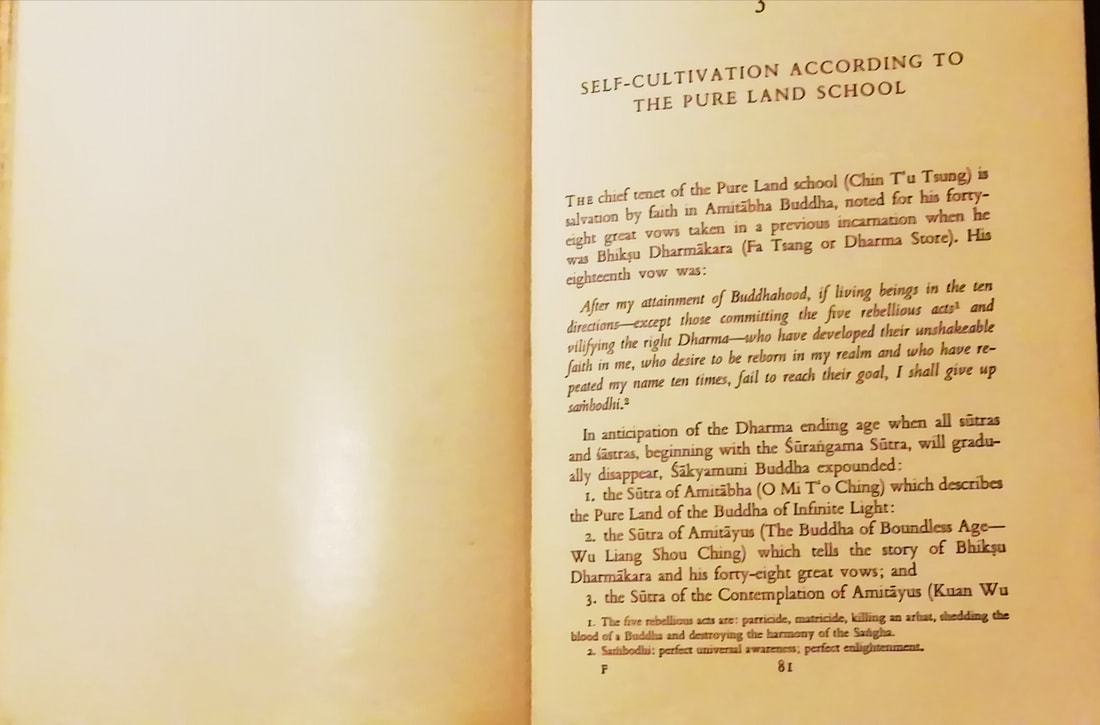
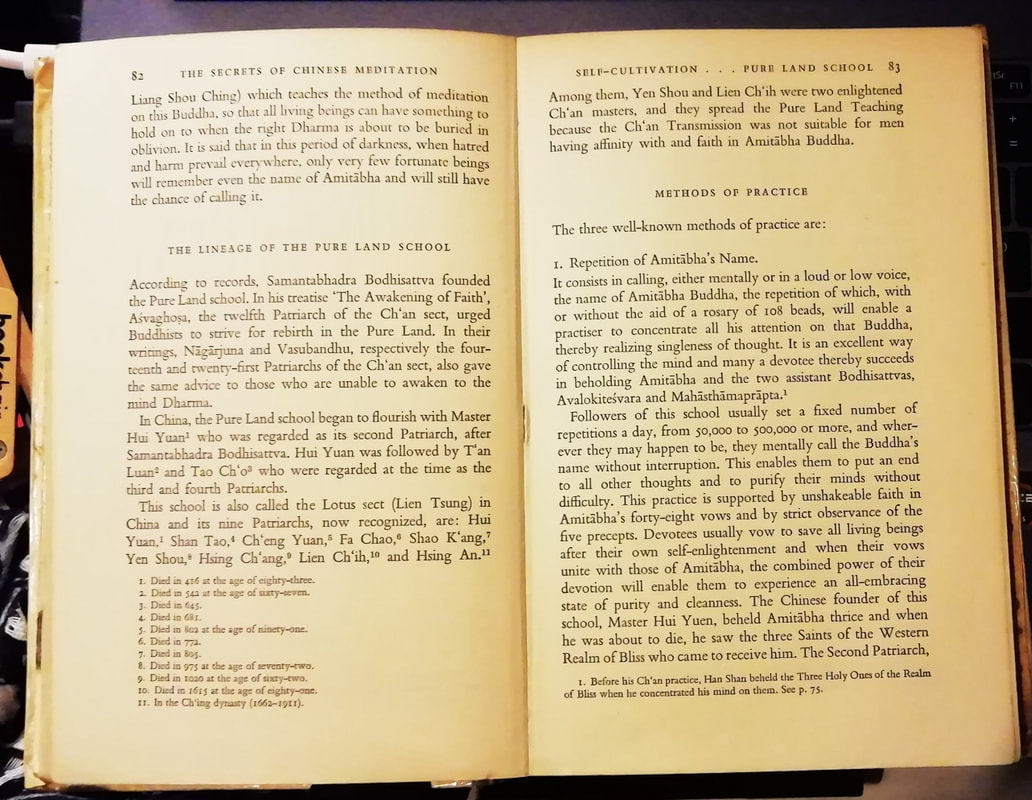
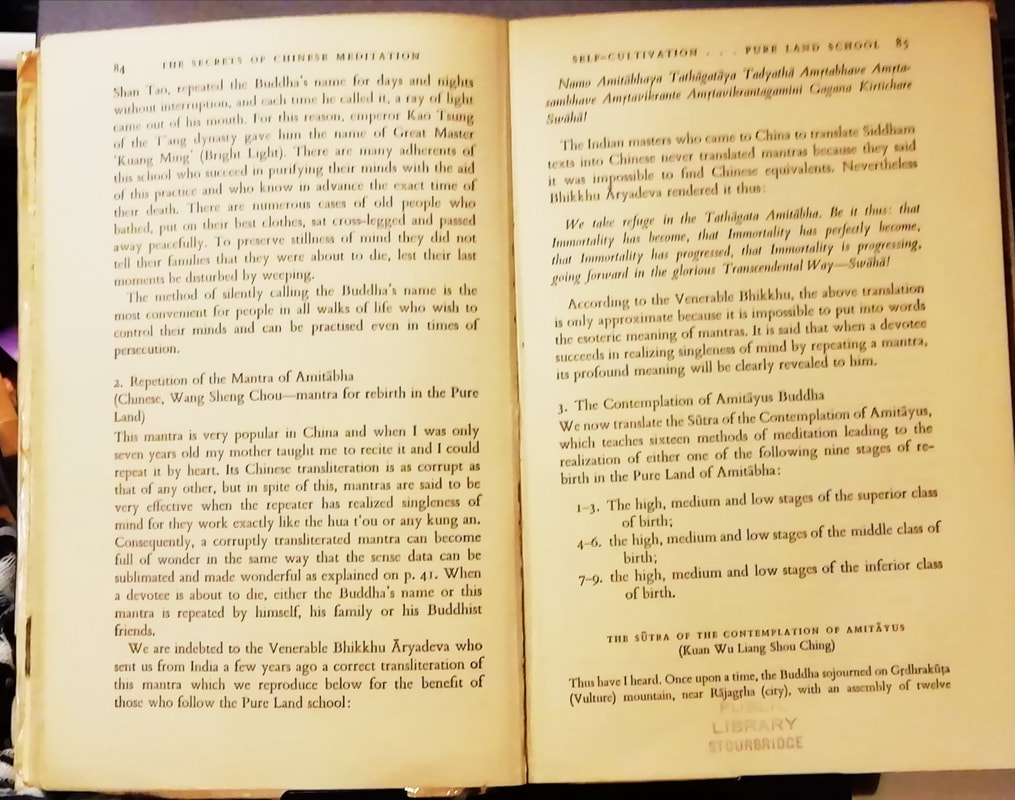
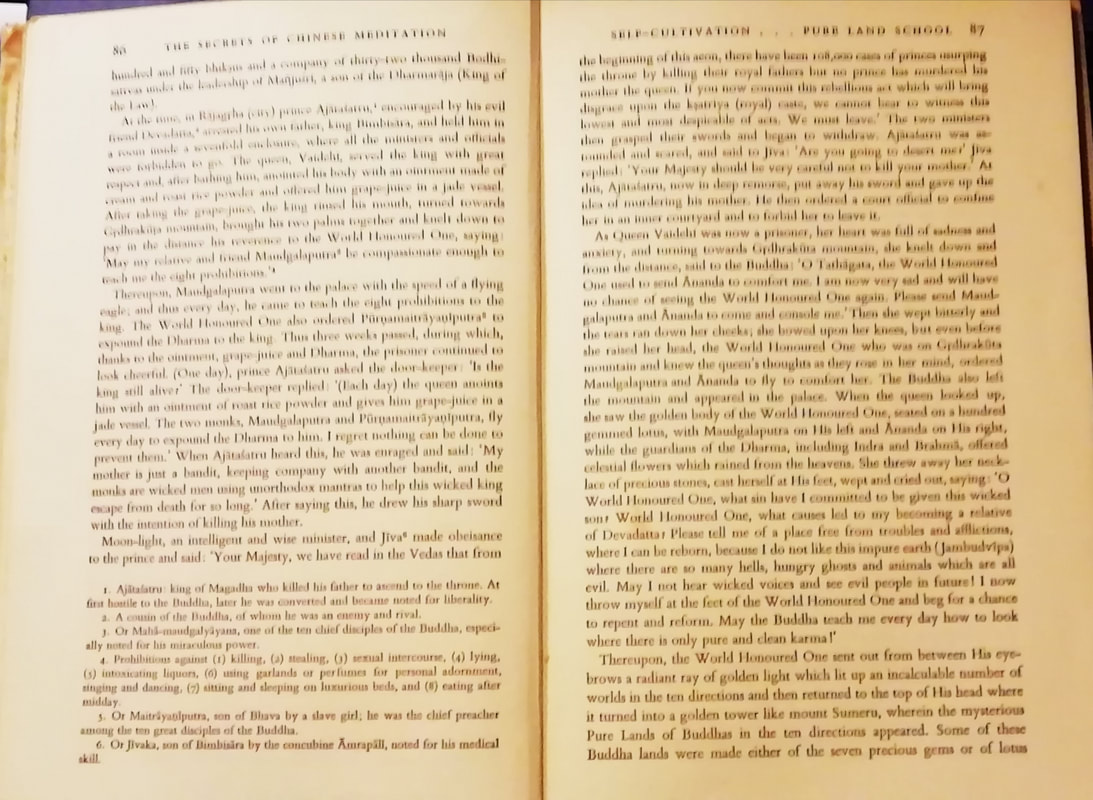
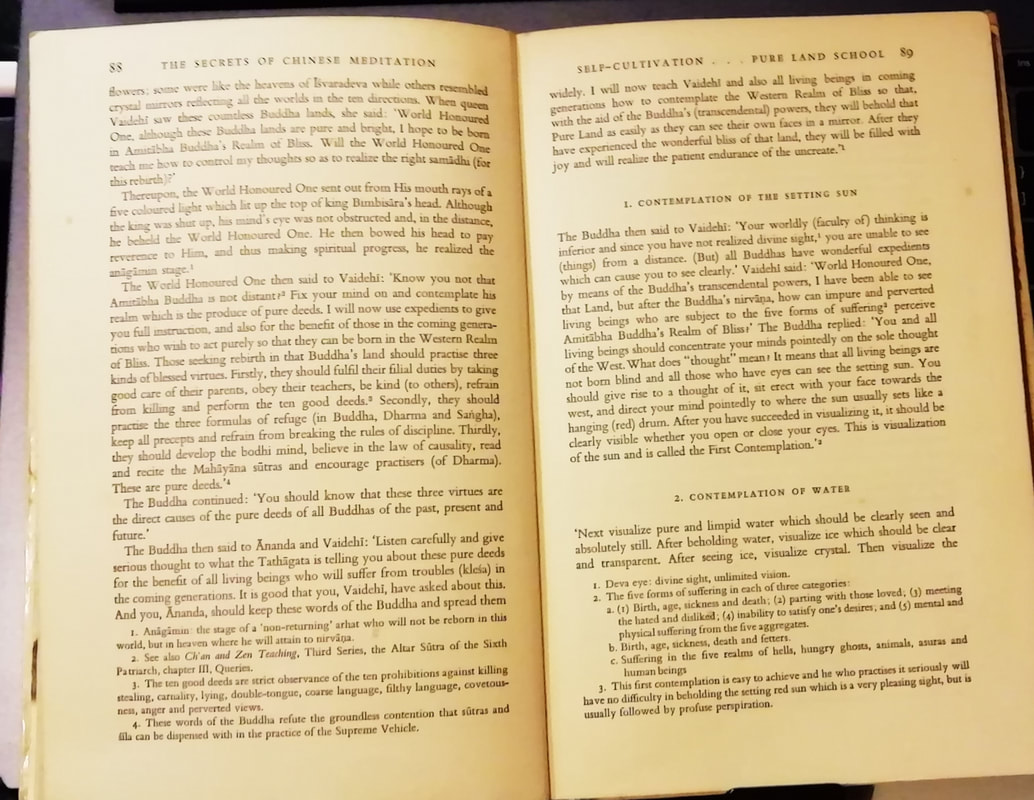
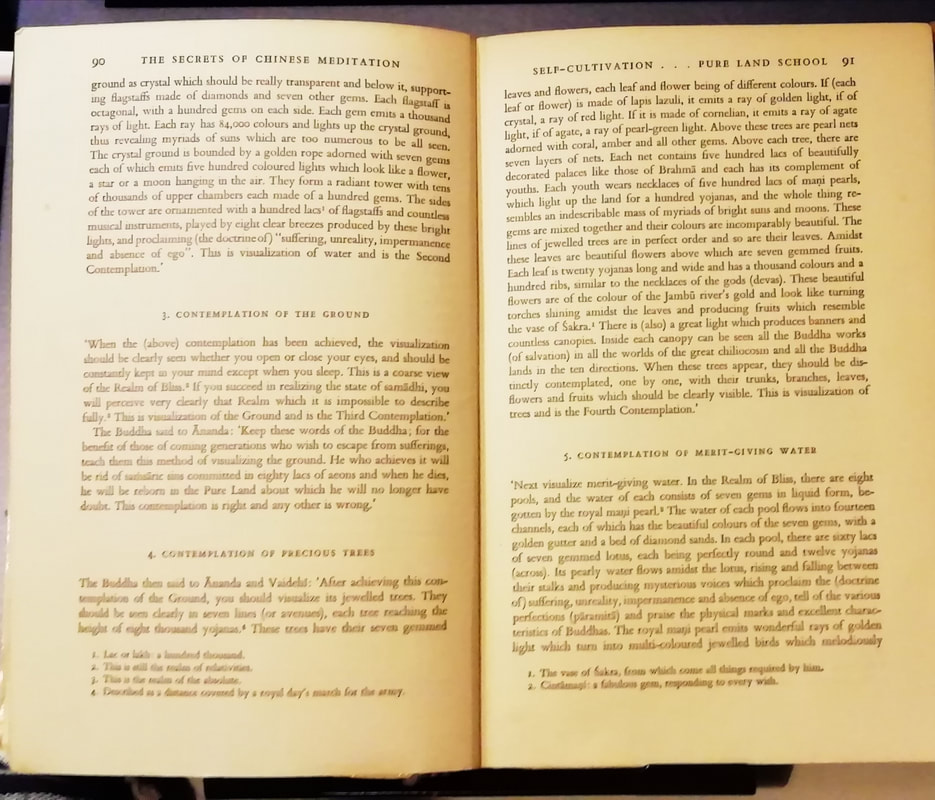
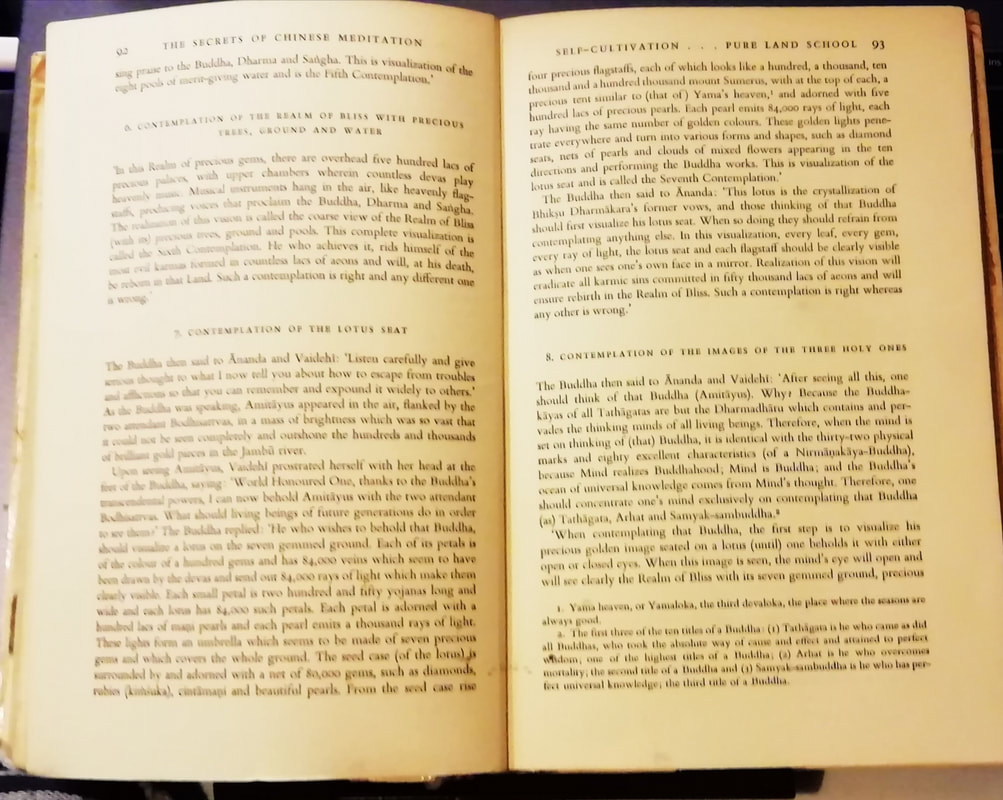
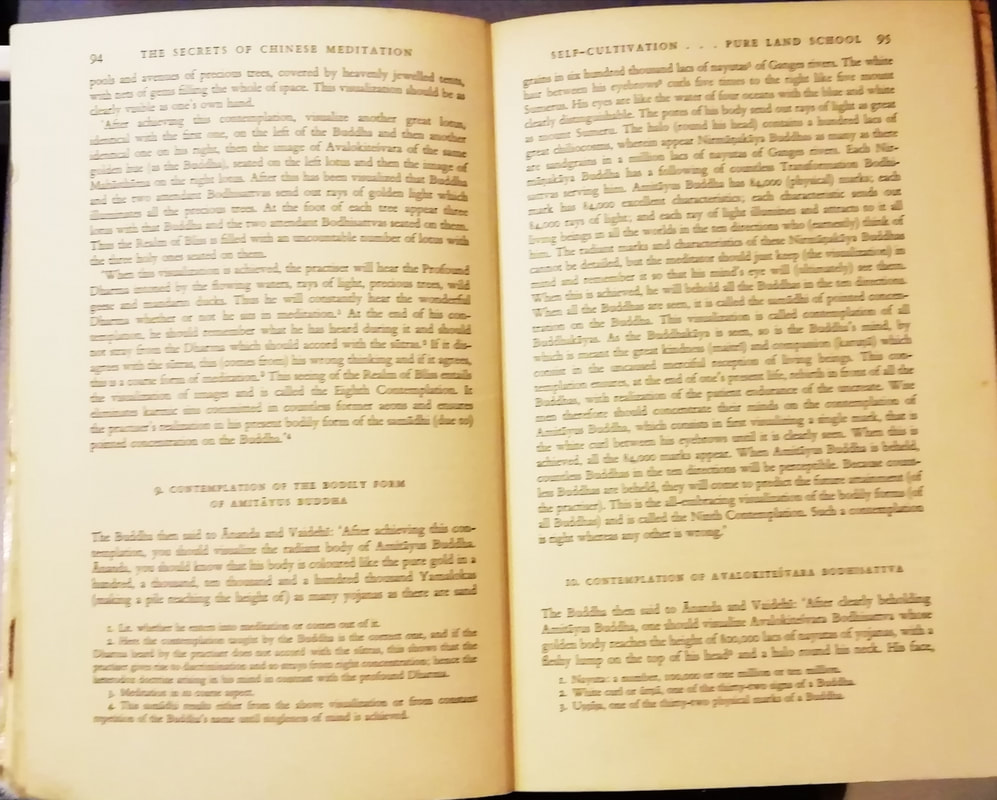
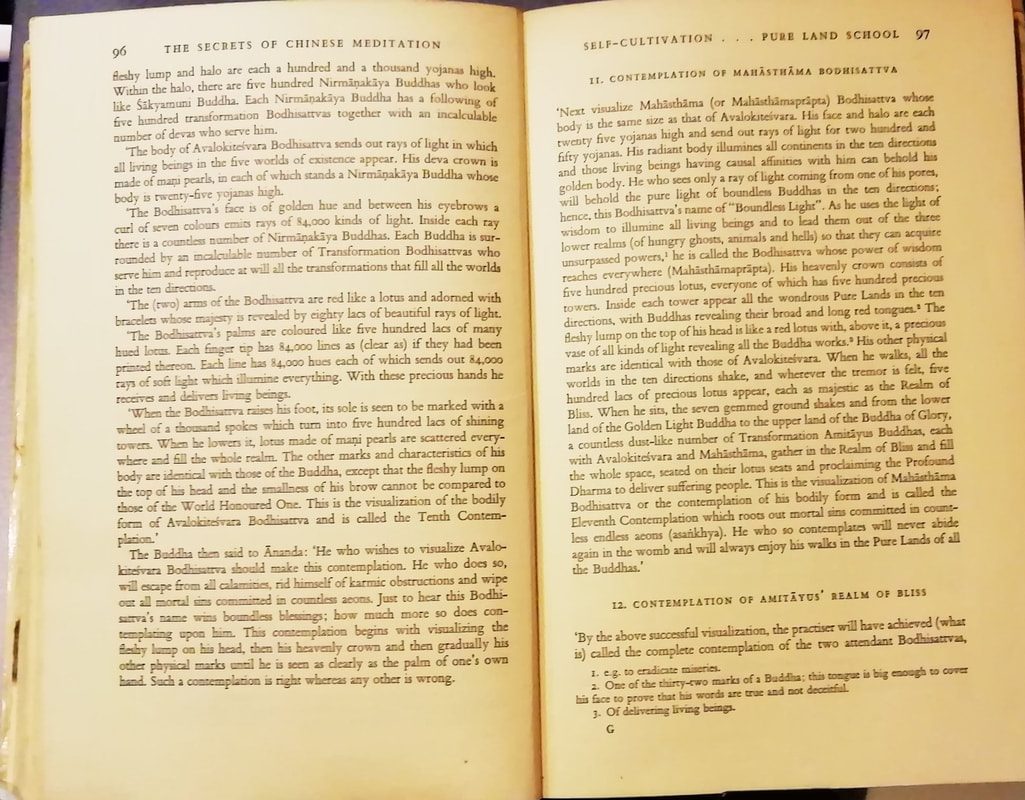
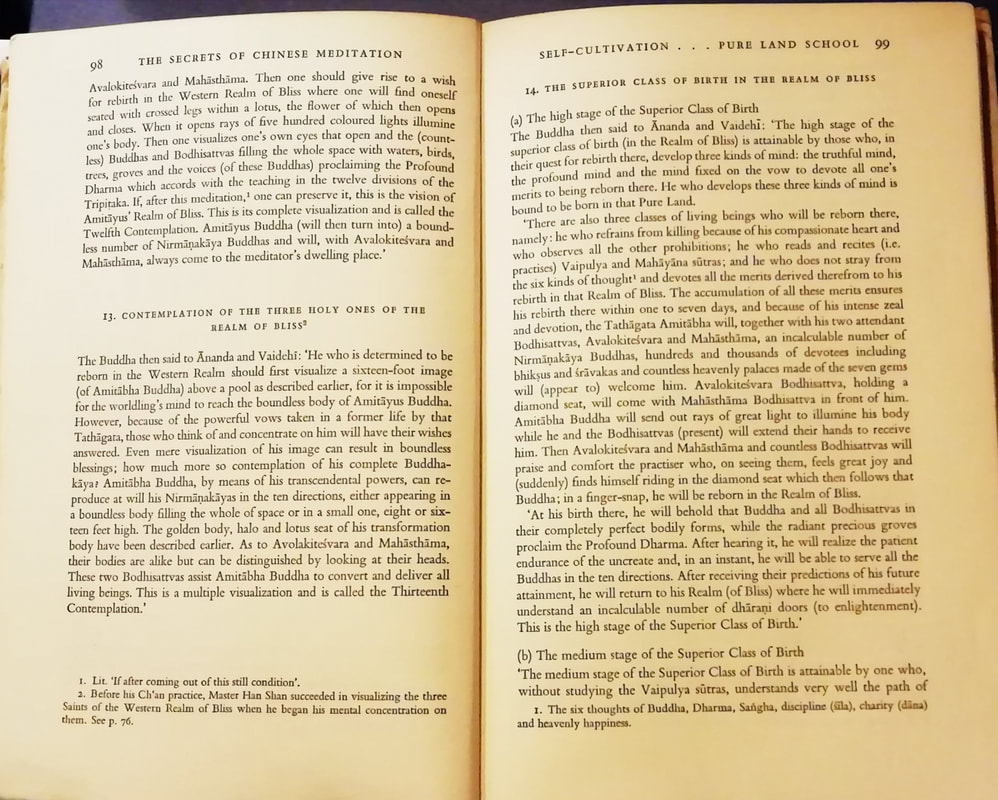
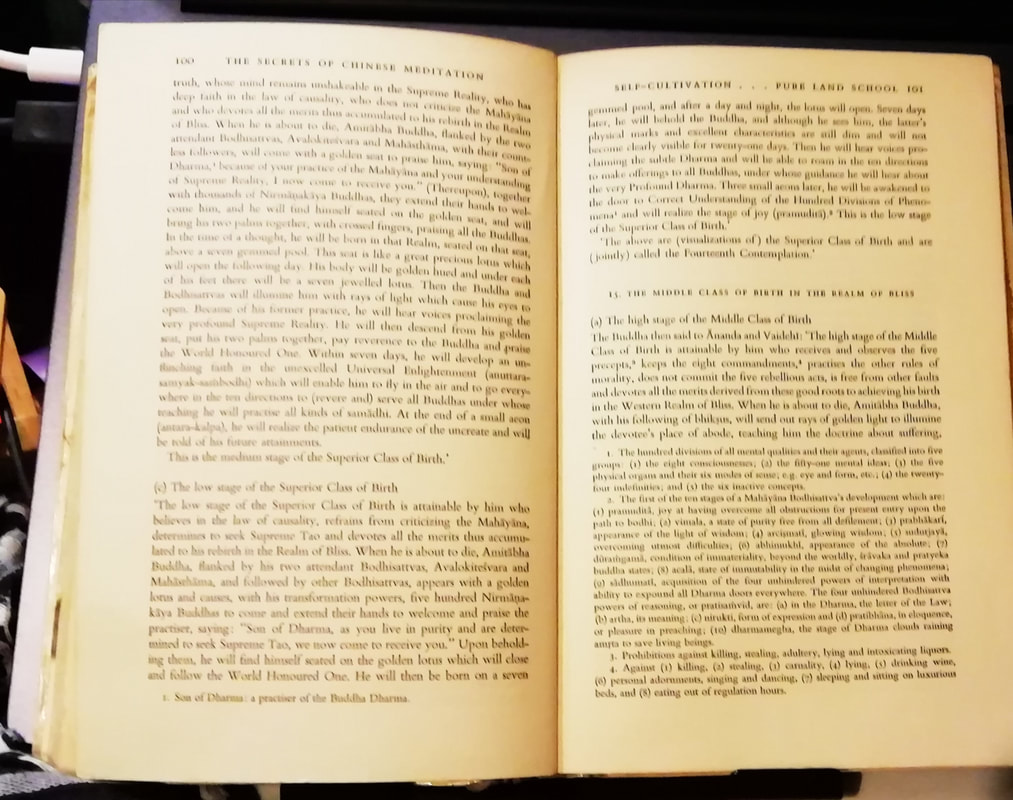
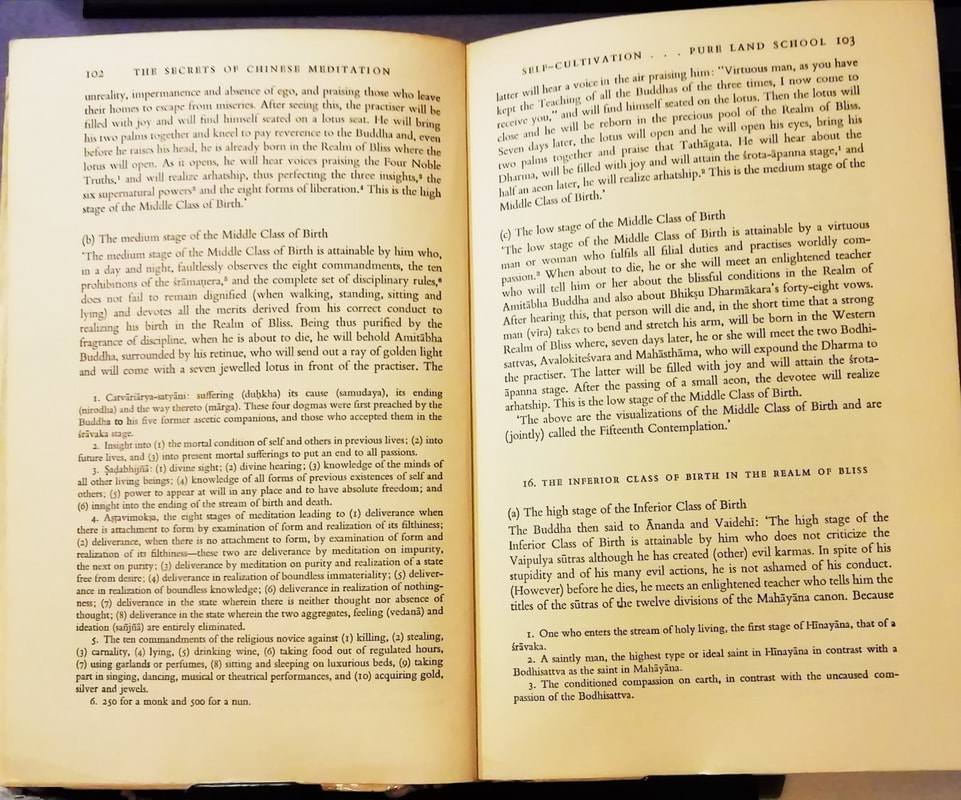
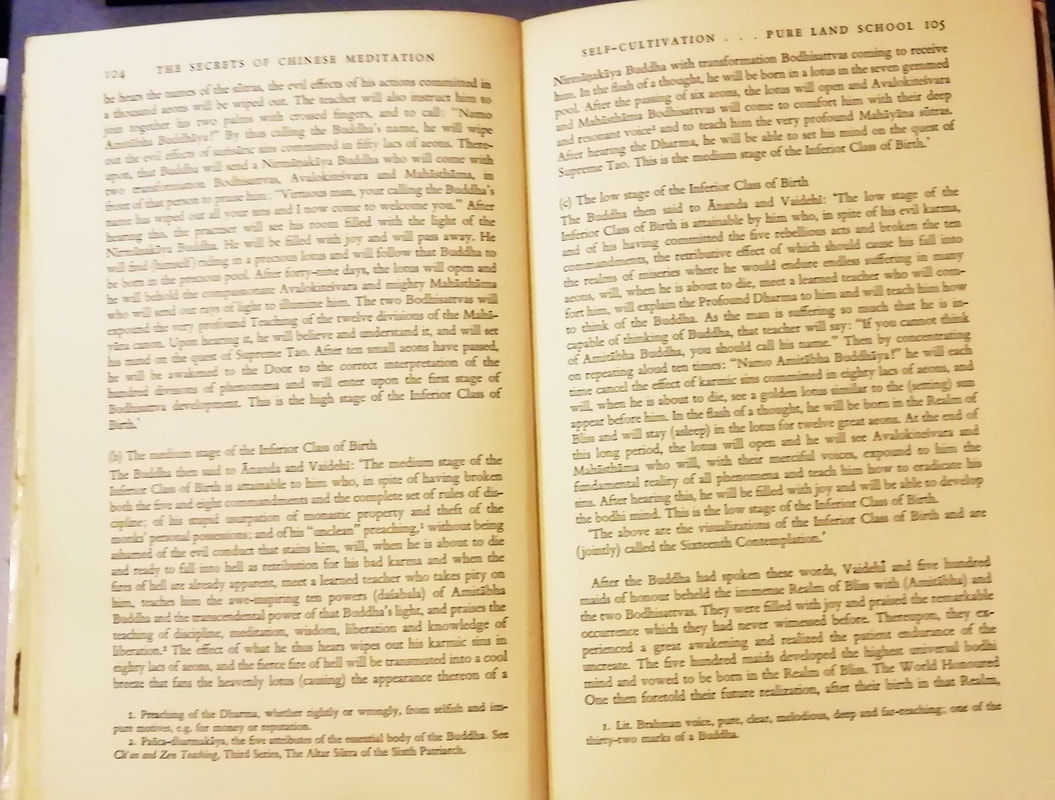
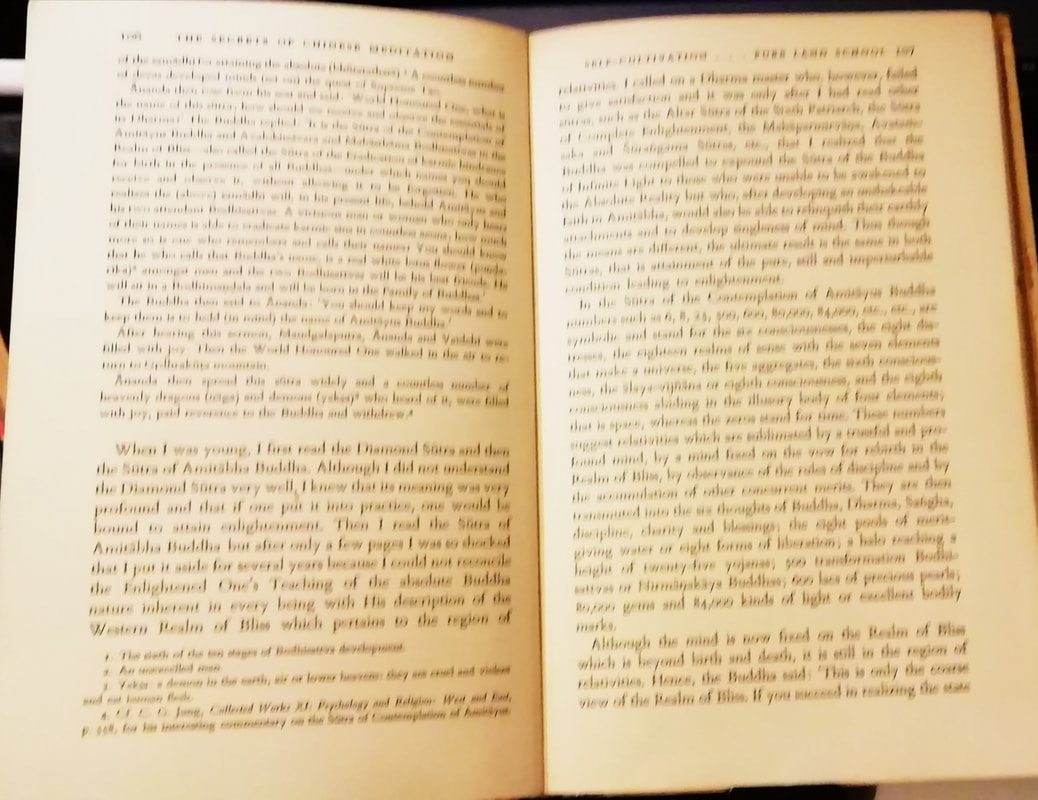
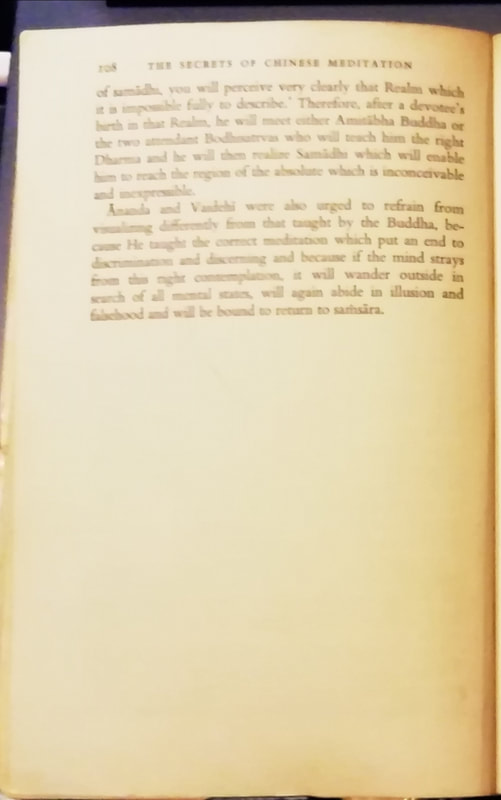
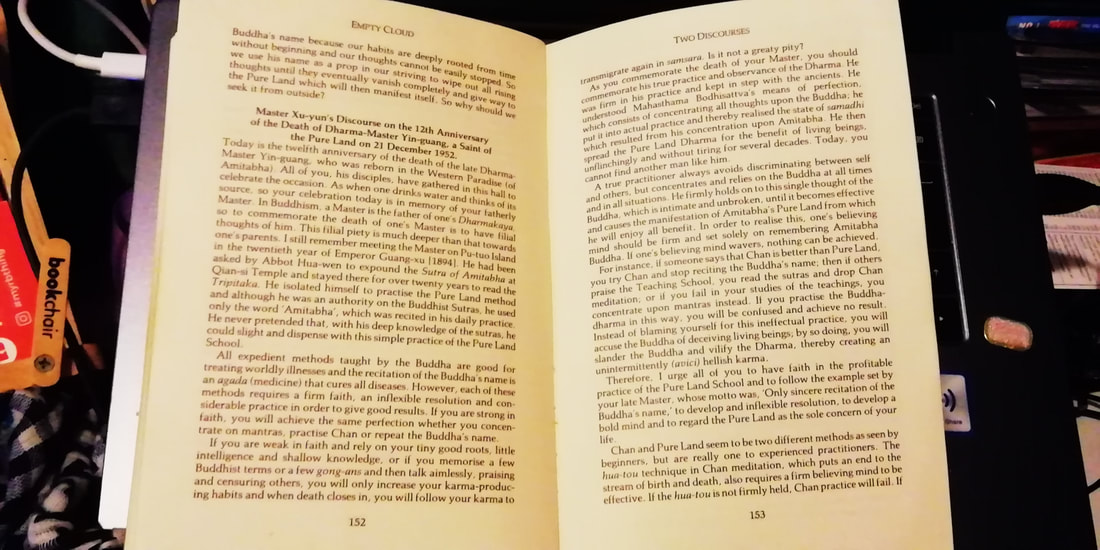
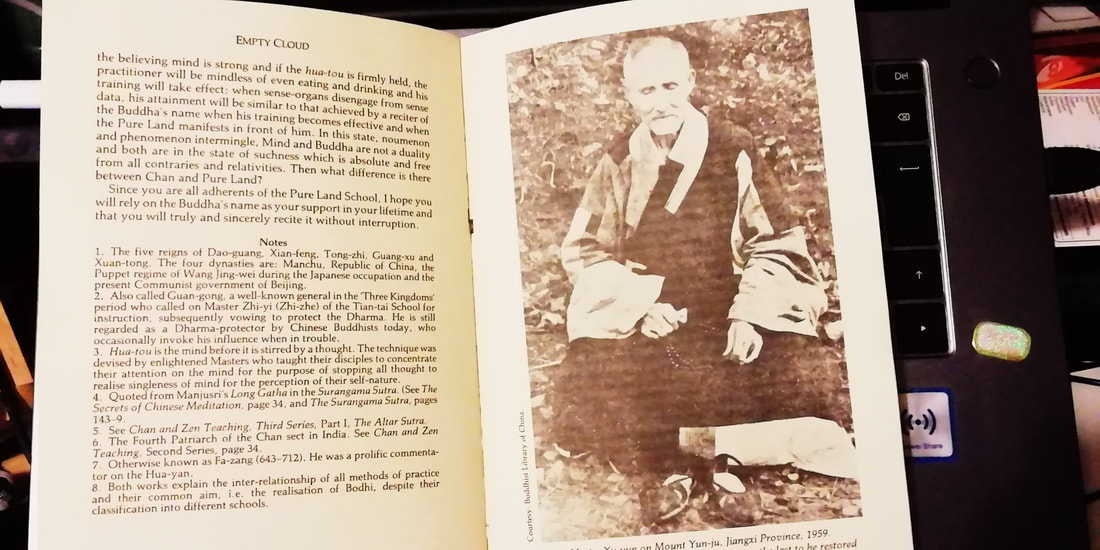
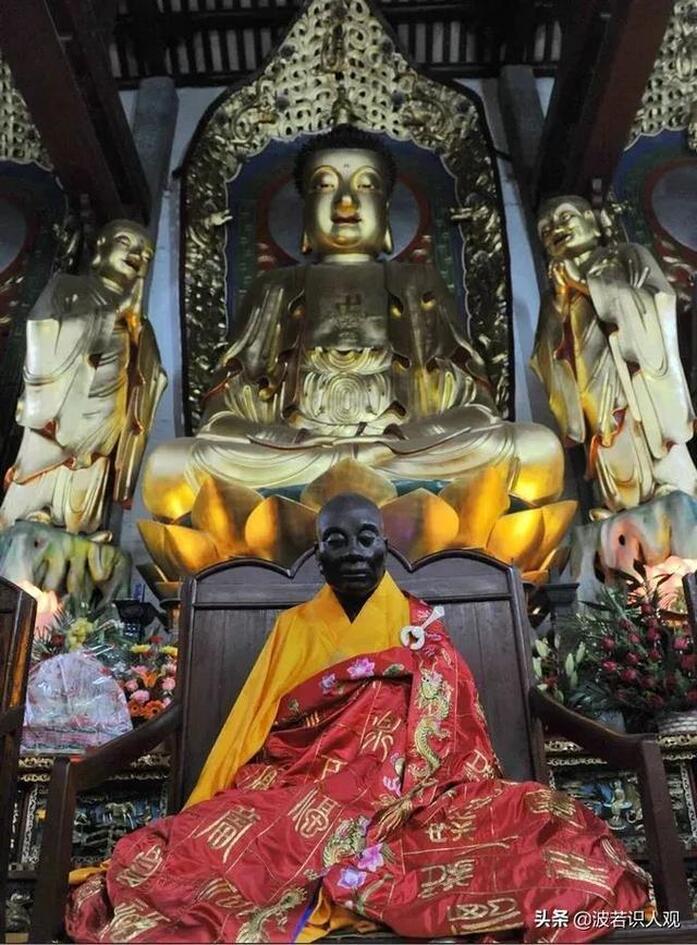
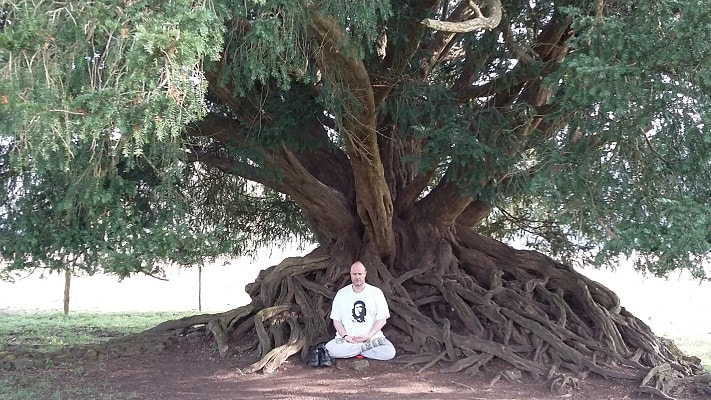
 RSS Feed
RSS Feed